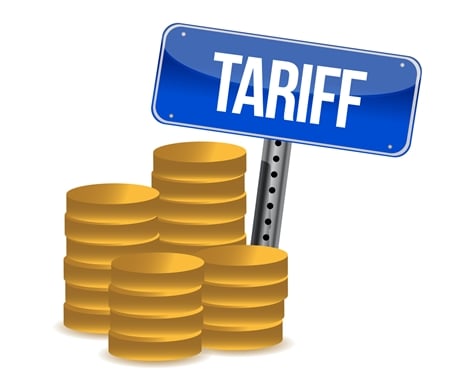REDWOOD LOGIN
Redwood PortalLTL
SCS
SCS Support
Rockfarm
 Anyone who watches the news understands that our President is not wasting time in his effort to “Make America Great Again.” One of his most important agenda items is finding a way to make America competitive again in the international free market – specifically with tariffs for imported and exported commodities. While this is an ongoing process, and there are likely going to be a few hurdles to climb in the meantime, there are several who are asking, as the import tariffs grow, how is domestic shipping going to be affected.
Anyone who watches the news understands that our President is not wasting time in his effort to “Make America Great Again.” One of his most important agenda items is finding a way to make America competitive again in the international free market – specifically with tariffs for imported and exported commodities. While this is an ongoing process, and there are likely going to be a few hurdles to climb in the meantime, there are several who are asking, as the import tariffs grow, how is domestic shipping going to be affected.
Noted below are a few of the items that might be impacted by growing import tariffs and negotiations between countries.
The biggest problem about the possible tariff changes on international shipping is the lack of facts on what is being changed. For example, nobody really can clearly explain some of the important factors that would impact tariffs in the shipping industry such as:
• Which countries are impacted?
• What type of commodities are being discussed?
• Are their commodities or shipping categories excluded in these negotiations?
• Are there countries that are exempt? If so – who and why?
• When would changing tariffs be implemented and for how long?
The President has made it quite clear that he wants to even the playing field for the USA with shipping and tariffs, however, he’s also announced several other concepts or initiatives, only to change his mind or pause the activation after discussion with experts in their fields. Until the facts are clearly outlined, it’s simply impossible to know for certain what impact changing tariffs will have on the US shipping industry.
Generally, when tariffs on imports or exports are increased, there are a few areas within shipping that are impacted in a negative way.
International trade is incredibly complex – and evolves daily. However, one fact about this segment is that as tariffs increase, is that the shipping tends to decrease. When tariffs are levied on imported goods, the inherent cost of the items is increased – which tends to significantly reduce consumption by American consumers. If the consumption is reduced, the demand drops – and so does the need to ship in replacement items.
Profit Margins for Freight Companies may Drop
A tariff is essentially a cost of purchasing tax or a penalty for buying an item not made in the country of purchase. Nearly every country on the planet has a tariff imposed on the US manufactured and shipped goods. Shipping companies in those countries typically operate with lower profit margins to stay competitive – and to ensure the price of imported commodities is affordable for consumers. As these tariffs are introduced in the USA, shipping companies will have to follow suit, so their consumers can continue purchasing them.
Did you know that steel and aluminum account for only two percent of the global trade? Did you also know that most of the steel imported into the USA is from Canada – not China as it’s been widely reported? However, the reality is that as tariffs increase on imported items coming into the US, some industries will suffer more than others.
The first area that has already seen a huge impact is manufacturing, especially those who require raw materials like copper, zinc, and aluminum – and purchase a large percentage of their product from China and other foreign countries. Many manufacturing companies have set their pricing based on the cost of goods from these countries. However, as the trade war increases, and the cost of importing those materials increases – many manufacturing companies simply can’t compete without significantly increasing their cost to their customers.
Like we stated above, the truth is that there are too many unanswered questions about the facts to make an honest estimation of the impact tariffs will have on the US shipping industry. There are rumors that Mexico and Canada will be exempt from steel tariffs. It’s also understood that US Steel and others are rapidly restarting steel-manufacturing in the US – which increases jobs and provides more supply for manufacturing companies. Until the facts are clearly explained, and legislation is enacted into law, we simply can’t predict how the logistics industry will be impacted by the growing threat of an international trade war.